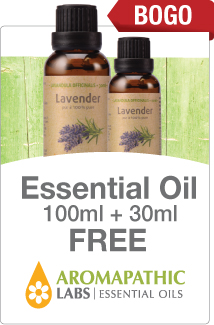Collagen: A Guide To Its Uses & Health Benefits
Updated Feb. 14th, 2024 | Read Time: 3 Minutes | What You Will Learn:
- Top Health Benefits of Collagen Supplements
- Cartilage and Joint Support
- Skin Benefits
- Different Types of Collagen: An Intricate Balance
- Type I & III
- Type II
- Type IV
- Important Information When Shopping For Collagen Supplements
Collagen is one of the major proteins found in the soft tissue and connective tissue of humans and other mammals. As a supplement, it acts as a source of amino acids for use in making and repairing connective tissue all over the body. Thus this protein is used to repair skin that is damaged by wounds and burns, and it can also help to support healthy cartilage, ligaments and tendons in the body. Natural health practitioners commonly recommend collagen supplementation for joint injury, arthritis, joint inflammation, skin ulcers, burns, wounds, as well as joint strains and sprains.
Top Health Benefits of Collagen Supplements
Cartilage and Joint Support
Cartilage is the connective tissue pad that acts as a cushion and eliminates friction in your joints. It is the cushion in your knees, and other large joints, and it forms the pads that space each vertebra to help protect the spinal cord. Wear-and-tear injuries occur in the joints and cause less support, less cushioning and more friction. Breakdown of cartilage is responsible for erosive conditions, such as osteoarthritis. Interestingly, the presence of the stress hormone cortisol in the blood promotes the breakdown of collagen into its amino acid building blocks.
Skin Benefits
Collagen is one of the main building blocks of the skin. The structure of this protein actually draws water into the tissues, resulting in firm, plump, youthful skin. Thus, a lack of sufficient cartilage can result in wrinkles and sagging of skin associated with aging. Collagen is often added to skin care products for topical application against wrinkles and age spots. In addition to keeping our youthful glow, the presence of this protein may help skin ulcers by repairing the skin and increasing the integrity of the arteries and veins. Because collagen provides the building blocks for skin repair, it can speed the healing of most wounds.
Different Types of Collagen: An Intricate Balance
There are a large number of collagen types in the body, referred to in the health industry by roman numeral. Four of these are the main ones used to form our tissues and organs.
Type I & III
Type I collagen is the type found in over 90% of the body. It is found in skin, tendon, vascular ligature, organs, bone, and scar tissue. In fact, collagen type I is the main organic component of the bone. Type III collagen is commonly found alongside type I in the human body. These types of collagen can also be used to provide the building blocks to help repair damaged ligaments and tendons.
Type II
Over 50% of cartilage protein is made of type II. This type is also commonly called hyaline cartilage. Cartilage is the tissue that eliminates friction in your joints. Because of this, type II collagen is often used as a supplement to provide the building blocks for the protection and repair of cartilage in the body. This allows it to be used to help treat wear-and-tear injuries, and erosive joint conditions like osteoarthritis.
Type IV
This particular type is found in the body's tissues and actually forms the vast majority of the basement membrane. This means that it forms the main connections between the bases of the cells of the tissues. This allows type IV collagen to support proper healing of wounds.
Important Information When Shopping For Collagen Supplements
Various types of this protein can be found as encapsulated powder or liquid. They are usually combined with other joint repairing nutrients and vitamins. Sometimes cartilage is directly supplemented to be a source of collagen, particularly type II. When found individually, type II collagen is found as a component of pain relieving and anti-inflammatory formulas. It is often added to anti-aging skin care products. Type I & III are also available and should be used after good results are found with type II to further rebuild damaged joints or tissue. Depending on the severity of joint destruction collagen may need to be taken for a few months before results are seen.























Considering the potential of collagen I will be trying it fir an extended time to see if my joints,skin and the rest see any difference.
Hello Tanya,
We're glad you enjoyed this article and were able to learn more about collagen and how it can help you. Our natural production really depletes around the age of 25; therefore many enjoy this supplement. If you'd like to learn more, be sure to read these articles too:
https://www.nationalnutrition.ca/articles/supplements/collagen-1-and-3/
https://www.nationalnutrition.ca/articles/supplements/collagen-2/
Keep healthy & carry on!
I've heard so much about collagen lately, I'm glad to have it all condensed into 1 article, with natural recommendations!
Collagen! I've heard so much about it recently but didn't really understand it's function or how a supplement could help. Now I get what the fuss is about.
Hello Sherri,
Collagen is a great way to support and be proactive about joint, hair, skin and nail health. Our natural collagen production depletes after the age of 25, so supplementing with a good collagen can provide the boost we need to stay healthy. If you'd like to learn more, check out our other collagen articles as well:
https://www.nationalnutrition.ca/articles/supplements/collagen-1-and-3/
https://www.nationalnutrition.ca/articles/supplements/collagen-2/
Stay healthy & well!
I take collagen daily, couldn't go on without it. It helps with my joint pain.
I started taking collagen for my osteoarthritis after it was recommended to me. I have noticed a slow but steady improvement throughout my body with lessening general stiffness and loss of movement. I just learned from this article about needing to have vitamin C with this supplement and I will start doing that now.
Hello Barbara,
Excellent you learned more about the supplement you're already taking. Vitamin C does help the absorption of collagen and as a bonus, the combination also supports skin health too! We have more articles on collagen that we think you'll enjoy.
https://www.nationalnutrition.ca/articles/supplements/collagen-1-and-3/
https://www.nationalnutrition.ca/articles/supplements/collagen-2/
Stay healthy & well
Pour améliorer ma santé générale et le début de problème d'articulation, je prend 3 capsules de Collagène de saumon. Cela fait déjà bien une année (juillet 2020 @ Mars 2021) que je suis cette prescription et constate une amélioration. Certes, l'alimentation générale est aussi un des grands facteurs qui contribue à une meilleure santé.
To improve my general health and the onset of joint problems, I take 3 Salmon Collagen capsules. It has been a good year (July 2020 @ March 2021) that I have been following this prescription and have noticed an improvement. Of course, the general diet is also one of the major factors that contributes to better health.
Bonjour Jean Marie,
Le collagène heureux vous a aidé. C'est un excellent complément parce que nous commençons à perdre notre production naturelle de collagène à 25 ans. Prendre un supplément aide à maintenir la production de collagène stimulée, ce qui contribue à la santé de la peau, des cheveux, des ongles et des articulations. Il existe 3 types de collagène, lisez nos autres articles pour en savoir plus.
https://www.nationalnutrition.ca/articles/supplements/collagen-1-and-3/
https://www.nationalnutrition.ca/articles/supplements/collagen-2/
Passez une bonne journée.
Collagen is something that I use everyday to promote healthy bones and hair etc.
Hello Sharon,
Collagen is a great supplement to take for bone, joint and skin health. It can also boost your natural collagen production! Here is some more information on supporting your skin health:
https://www.nationalnutrition.ca/articles/health-concerns/skin-health/
Stay healthy & well!
There are so many different types of collagen, I am currently taking a collagen supplement but because I don't eat meat or meat products I am taking a marine collagen product and I am now concerned that it may not be providing me with all of the types of collagen that would be beneficial for me. Unfortunately I have not found any good vegan/vegetarian or non-animal collagen's out there that can do the same job as bovine derived ones.
Hello, RoseWithThorns,
There are 3 types of collagen that our body naturally produces in a specific ratio. If you are taking a collagen supplement then it is important for that supplement to also contain the 3 types in the optimal ratio. You can also use plant-based collagen-boosting supplements like Silicea which keeps your natural collagen production boosted. You can check it out here:
https://www.nationalnutrition.ca/collagen/silica.html
https://www.nationalnutrition.ca/organika-full-spectrum-collagen-type-1-2-3-bone-broth-flavour-250g.html
Stay healthy & well!